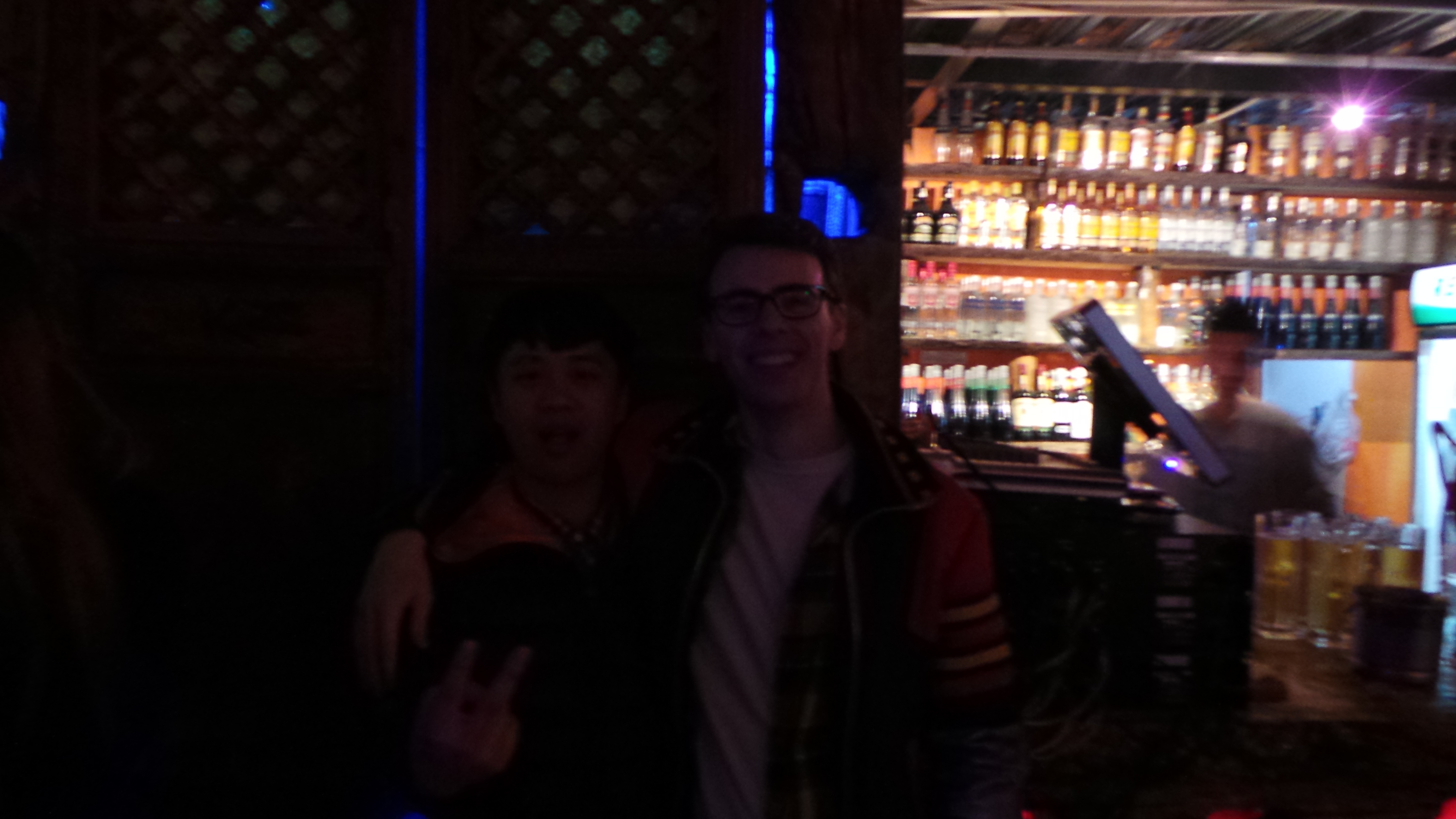Pixian is a suburb of Chengdu that I heard a few people refer to as “the country” despite it having a population density higher than you could find anywhere in the Maritimes. There in Pixian is Chengdu Technological University, and there at CTU was me, this past month, and not much else besides. I had expected to be somewhat closer to Chengdu proper, but just go ahead and add that to the list of things I had expected. What Pixian did have in spades, I will say, is cake. There was a bakery a couple of blocks down from the hotel I was living in that made all kinds of things I liked, but especially this cake that tasted like vanilla pudding. It was, I think, my primary source of lipids in China, because I could get roughly a pound of cake for around two dollars, and cookies and things too.
Chengdu was a much more interesting town. On the weekends, I would go in there for a couple of nights and look around. There were too many disjointed things happening to tell a non-rambling story about it, but there are some pictures up on Tumblr.
It may shock you to learn that when I was in high school, I skipped more than a few classes. I think the statute of limitations has expired on this by now. The thing is, I had so many classes that I gained absolutely nothing from, that were just a waste of my valuable youth. My old friend Simon was a particularly good class skipping buddy, and I still remember laying in the grass outside the Charlottetown Mall, eating licorice and looking at the sky with him. It was one of those perfect moments, the kind of genuine happiness that comes in a year a number of times you can count on your fingers. Besides that, I really think I learned more of lasting value on those days than I would have in class. Coleridge knows what I mean (“Lines Written at a Small Distance from My House, and Sent By My Little Boy to the Person to Whom They Are Addressed”):
One moment now may give us more
Than fifty years of reason;
Our minds shall drink at every pore
The spirit of the season.
My second Friday of teaching was the nicest day weather-wise of my entire stay. If you were talking to me at the time, you know that I was still really struggling to teach effectively. If not, what you need to understand is that these students did not speak English. Maybe a little, but to boil it down to a yes or no, no. When the sun came out in the afternoon, I thought about laying in the grass and looking at the sky. The grass that day finally looked green in the sunlight, not the grey-brown I thought it was. You can guess the rest of this story, I think. We spent that afternoon on a soccer field, to which the students brought snacks and beer and a kite like they were drilled on it twice daily. That made me some more friends among the students, which got me to a bar called Helen’s in Chengdu that weekend, where beer is just 100% free between 9:00 and 10:00 (aka how many beers can you drink in an hour). I feel like this afternoon outside was the best decision I made in my entire time in China.

The line for free beer forms on the right. Also on the left and in the middle. There are no lines in China.
